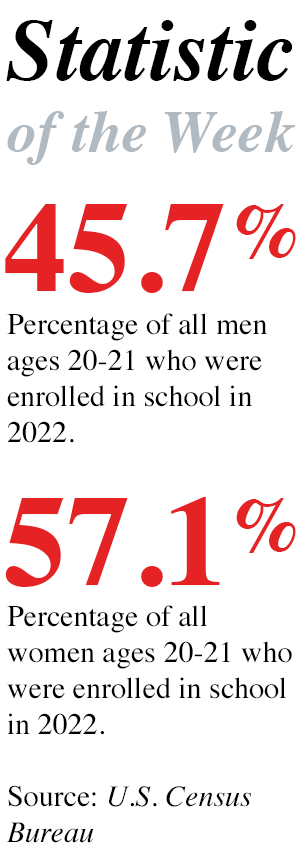Association of American Universities Issues New Guidelines to Address Sexual Assault
Posted on Nov 01, 2021 | Comments 0
 The Association of American Universities is a group of 66 of the nation’s leading educational research institutions. In 2019 alone, AAU paid $95.5 billion in salaries to 811,222 employees, produced 5,033 patents, and fostered the creation of 668 start-ups. Member institutions received $27.7 billion in federally funded basic research in 2019, or 62 percent of the total amount funded. In 2019, AAU institutions awarded 49 percent of all research doctoral degrees and 20 percent of all undergraduate degrees in STEM and the social sciences.
The Association of American Universities is a group of 66 of the nation’s leading educational research institutions. In 2019 alone, AAU paid $95.5 billion in salaries to 811,222 employees, produced 5,033 patents, and fostered the creation of 668 start-ups. Member institutions received $27.7 billion in federally funded basic research in 2019, or 62 percent of the total amount funded. In 2019, AAU institutions awarded 49 percent of all research doctoral degrees and 20 percent of all undergraduate degrees in STEM and the social sciences.
 The association recently issued a set of eight guidelines addressing sexual misconduct in all forms, including sexual and gender-based harassment and related retaliation. “The principles focus on three critical aspects of addressing sexual harassment on campus,” said AAU President Barbara R. Snyder. “They seek to prevent the abuse from happening in the first place through policies focused on educating the campus community and ensuring that sexual harassers don’t get passed from one institution to the next. They also intend to provide victims with the resources and the support they need to report abuse and, finally, to hold harassers accountable.”
The association recently issued a set of eight guidelines addressing sexual misconduct in all forms, including sexual and gender-based harassment and related retaliation. “The principles focus on three critical aspects of addressing sexual harassment on campus,” said AAU President Barbara R. Snyder. “They seek to prevent the abuse from happening in the first place through policies focused on educating the campus community and ensuring that sexual harassers don’t get passed from one institution to the next. They also intend to provide victims with the resources and the support they need to report abuse and, finally, to hold harassers accountable.”
The association stated that member institutions have a responsibility to:
- Foster a climate and culture where sexual misconduct is unacceptable, and implement policies and practices aimed to support a harassment-free learning, living and working environment for all members of the campus community;
- Educate our campus communities about, and elevate the importance of, institutional values, policies, and expectations of individual behavior, including how to report sexual misconduct and how to support fellow community members who have experienced sexual misconduct;
- Provide support and remove barriers for all of those who report, making certain to have resources directed toward those in groups who most often experience harassment and other forms of sexual misconduct;
- Address reports of sexual misconduct in a manner that is consistent with the institution’s process, respectful, ethical, appropriately thorough, and timely;
- Hold accountable, in a fair and equitable manner, those students, faculty, staff, and administrators at all levels who are found responsible for such violations;
- In making hiring decisions, request or require applicants to provide written consent to release personnel information from their prior employer of substantiated findings of sexual misconduct, consistent with applicable law;
- Share substantiated findings of sexual misconduct with prospective employers when requested, upon receipt of written authorization when necessary, and consistent with applicable law, and;
- To the extent possible, complete all investigations into sexual misconduct, notwithstanding the departure of the respondent from the institution.
Filed Under: Sexual Assault/Harassment








